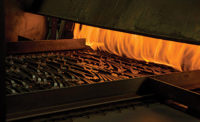On Feb. 14, workers at Volkswagen’s assembly plant in Chattanooga, TN, voted to reject representation by the United Auto Workers. The vote—712 against vs. 626 in favor—was a devastating blow to the UAW, which had spent the past two years trying to organize the facility. Since VW was surprisingly open to the organizing effort, the factory was seen as the UAW’s best chance to win over a foreign-owned assembly plant in the South.
The election attracted national attention from politicians and organizations both for and against the UAW. Weeks before the vote, billboards and other advertisements sought to influence public opinion. Some of Tennessee’s elected officials—notably U.S. Sen. Bob Corker and Gov. Bill Haslam—were stridently opposed to the union. The latter even threatened to withhold future incentives for VW if the union was successful.
In light of such opposition, the UAW has asked the National Labor Relations Board (NLRB) to invalidate the results of the election, arguing that “interference by politicians and outside special interest groups” created “a general atmosphere of fear of reprisal, rendering a free election impossible.”
There are rules about what unions and management can say during union election campaigns. But statements by third parties with no direct connection to either side fall into a gray area. At press time, the NLRB hadn’t issued a ruling on the case.
On the other hand, the UAW may have itself to blame. Some workers who voted no cited the UAW’s Faustian bargain of two-tier wage contracts at General Motors, Ford and Chrysler. They noted that some VW workers in Chattanooga already earn more than new U.S. hires at the Detroit 3.
Other workers pointed to a clause in a preliminary agreement between VW and the union prior to the organizing drive. If the UAW had won, the clause called for maintaining the “competitive advantages that [VW Chattanooga] enjoys relative to its competitors in the United States and North America.” Some workers believed that meant wages and benefits would be prevented from getting too high compared with other U.S. plants.
With only 53 percent of workers opting against the UAW, the VW vote could hardly be called a decisive victory for union foes. Even so, the odds of organizing assembly plants run by Nissan, Toyota, Hyundai, Kia, BMW and Mercedes throughout the South now seem long, indeed.
Some conservatives now question whether the UAW and other unions are even relevant today. They might have a point. According to the federal Bureau of Labor statistics, only 11.3 percent of U.S. workers were union members in 2013. In 1983, the first year for which comparable data are available, the union membership rate was 20.1 percent. (UAW membership has dwindled from 1.5 million in 1979 to about 380,000 today.)
Faced with workers who are mostly satisfied with management and wage rates (at VW, anyway), the UAW and other unions will have to up their value proposition if they are to survive.






